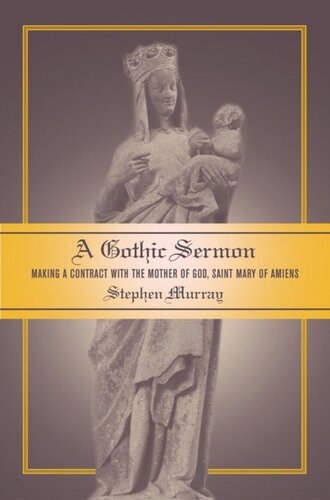

Most ebook files are in PDF format, so you can easily read them using various software such as Foxit Reader or directly on the Google Chrome browser.
Some ebook files are released by publishers in other formats such as .awz, .mobi, .epub, .fb2, etc. You may need to install specific software to read these formats on mobile/PC, such as Calibre.
Please read the tutorial at this link: https://ebookbell.com/faq
We offer FREE conversion to the popular formats you request; however, this may take some time. Therefore, right after payment, please email us, and we will try to provide the service as quickly as possible.
For some exceptional file formats or broken links (if any), please refrain from opening any disputes. Instead, email us first, and we will try to assist within a maximum of 6 hours.
EbookBell Team

0.0
0 reviewsIn this groundbreaking work, Stephen Murray seizes a rare opportunity to explore the relationship between verbal and visual culture by presenting a sermon that may have been preached during the second half of the thirteenth century in or near the cathedral of Notre-Dame of Amiens, whose sculptural program was completed at about the same time. In addition to providing a complete transcription and translation of the text, Murray examines the historical context of the sermon and draws comparisons between its underlying structure and the Gothic portals of the cathedral. In the sermon, as in the cathedral, he finds a powerful motivational mechanism that invites the repentant sinner to enter into a new contract with the Virgin Mary.
The correlation between elements of the sermon's text and the sculptural components of the cathedral leads to an exploration of the socioeconomic conditions in Picardy at the time and a vivid sketch of how the cathedral and its images were used by ordinary people. The author finds parallels in the rhetorical tools used in the sermon, on the one hand, and stylistic and compositional tools used in the sculpture, on the other. In addition to providing a fascinating and cogent consideration of medieval beliefs about salvation and redemption, this book also lays the groundwork for a long overdue examination of the performative and textual in relationship to sculpture.